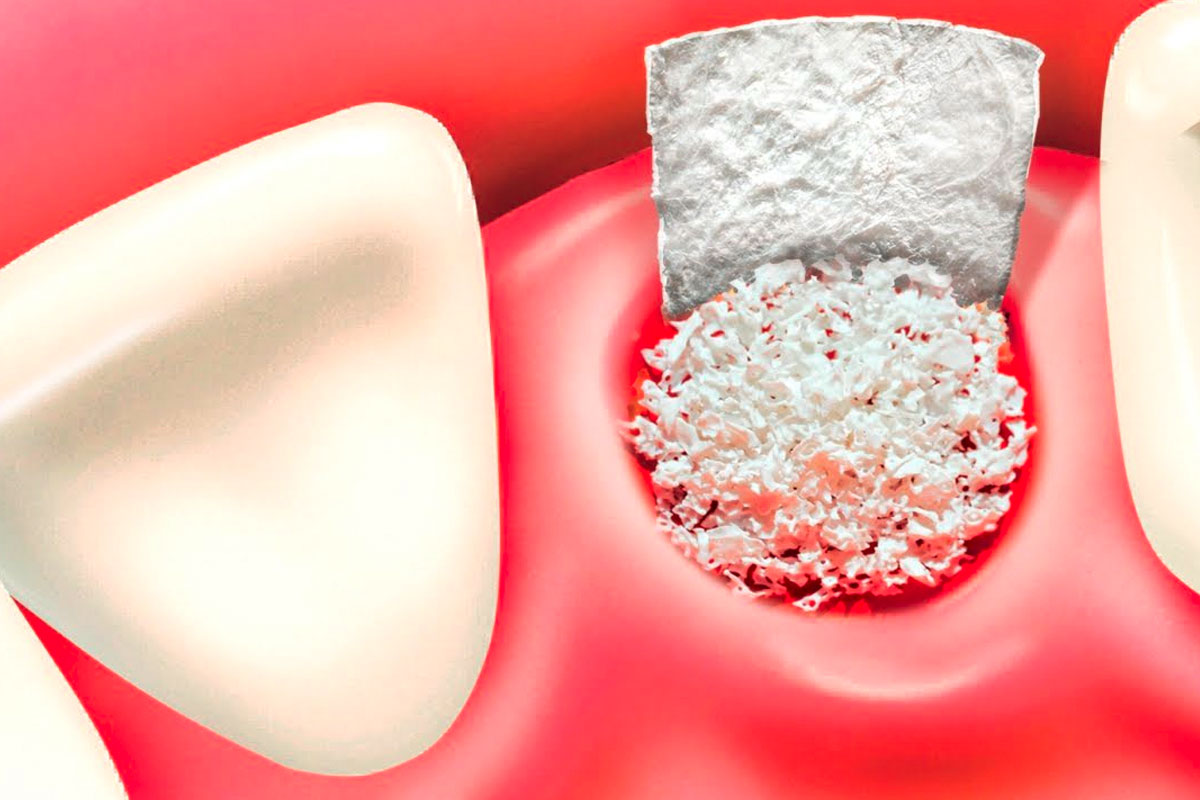If you’re considering dental grafts but feeling overwhelmed by information, know that they are a proven and effective solution. They’re widely used to address issues like missing teeth or damaged bone and gum tissue, known for enhancing oral health and restoring function and appearance.
What are Dental Grafts?
Dental grafts, also known as dental bone grafts, involve transferring bone tissue to replace missing or damaged bone around teeth. This is often done to create a strong foundation for dental implants. These procedures use different sources of bone: autogenous grafts use the patient’s bone, allografts use donor bone, and xenografts use bone from other species like cows or pigs. The bone material can be in granules or blocks, placed where needed to fuse with existing bone, promoting growth and stability. Typically performed by oral surgeons or periodontists, these procedures improve the supporting structures of teeth.
Reasons for Needing a Dental Graft
Several factors may lead to the need for a dental graft, including:
- Tooth Loss: Dental grafts are frequently required to replace missing teeth. When a tooth is lost, the surrounding bone can gradually weaken. A dental graft can reconstruct the bone, providing a stable foundation for dental implants or other restorative procedures.
- Periodontal Disease: Advanced periodontal disease, often referred to as gum disease, can result in bone loss around the teeth. Dental grafts can stimulate the regeneration of lost bone, enhancing overall tooth health and stability.
- Trauma or Injury: Accidents or injuries to the mouth can lead to bone loss. Dental grafts can repair the damaged bone, enabling the placement of dental implants or other restorative treatments.
- Jawbone Atrophy: Jawbone shrinkage, typically caused by tooth loss or the use of dentures, can impact facial aesthetics and function. Dental grafts can rebuild the bone, establishing a solid base for dental implants while improving both appearance and functionality.
Who Is a Good Candidate for a Dental Bone Graft?
A good candidate for a dental bone graft typically:
- Has Overall Good Health: Dental bone grafts are surgical procedures, so it’s essential to be in generally good health to ensure proper healing and recovery. Existing medical conditions and medications should be discussed with the dentist or oral surgeon.
- Maintains Excellent Oral Hygiene: Successful dental grafts depend on a healthy oral environment. Candidates should have a mouth free from active gum disease or infections before undergoing a dental bone graft.
- Has Adequate Bone Volume: Sufficient bone volume is necessary to support the dental graft and promote successful bone regeneration. If there is insufficient bone, additional procedures like bone augmentation may be required before a dental bone graft.
- Commits to Post-Operative Care: Proper post-operative care is critical for the success of dental bone grafts. This involves following instructions provided by the dental professional, maintaining good oral hygiene, and attending follow-up appointments for monitoring and evaluation.
Recovery and Aftercare for Dental Grafts
Successful recovery post-dental graft is crucial for graft effectiveness and overall oral health. Key aspects of recovery and care include:
- Rest and Healing: Rest and avoid strenuous activities for several days to support effective healing and bone regeneration.
- Pain Management: Address discomfort with prescribed or over-the-counter pain relievers from your dentist or oral surgeon.
- Oral Hygiene: Maintain excellent oral hygiene, with initial caution around the graft site, following guidance from your dental professional.
- Dietary Choices: Opt for a soft diet to reduce pressure on the graft site, favouring foods like soups, mashed potatoes, and yogurt.
- Follow-Up Appointments: Regularly attend follow-up appointments with your dentist or oral surgeon to monitor graft progress, potentially using X-rays or imaging.
- Avoid Smoking and Alcohol: Refrain from smoking and alcohol, which can hinder healing and raise complications risk during recovery.
Following these guidelines and attending all follow-up appointments enhances the success of your dental graft procedure.
Richmond Dental Centre Accepting New Patients
Are you looking for a local dentist in the city of Richmond? The Dental Professionals at Richmond Dental Centre welcomes walk-ins, emergencies & new patients! Give us a call at (604) 273-3368 to schedule a dental appointment.






